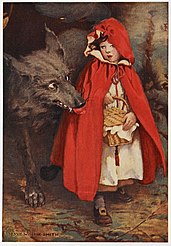
Back Folklore Afrikaans Folklore AN تراث شعبي Arabic اثنولوجيا اقليميه ARZ লোককথা Assamese Folclor AST Folklor Azerbaijani فولکلور AZB Satua Bali BAN Fuolkluors BAT-SMG

Folklore is the body of expressive culture shared by a particular group of people, culture or subculture.[1] This includes oral traditions such as tales, myths, legends,[a] proverbs, poems, jokes, and other oral traditions.[3][4] This also includes material culture, such as traditional building styles common to the group. Folklore also encompasses customary lore, taking actions for folk beliefs, and the forms and rituals of celebrations such as Christmas, weddings, folk dances, and initiation rites.[3]
Each one of these, either singly or in combination, is considered a folklore artifact or traditional cultural expression. Just as essential as the form, folklore also encompasses the transmission of these artifacts from one region to another or from one generation to the next. Folklore is not something one can typically gain from a formal school curriculum or study in the fine arts. Instead, these traditions are passed along informally from one individual to another, either through verbal instruction or demonstration.[5]
The academic study of folklore is called folklore studies or folkloristics, and it can be explored at the undergraduate, graduate, and Ph.D. levels.[6]
- ^ Schlinkert 2007, p. 30.
- ^ "Definition of legend". Dictionary.com. Archived from the original on 24 March 2022. Retrieved 24 March 2022.
- ^ a b Dundes 1965, p. 3.
- ^ Schlinkert 2007, p. 33.
- ^ Schlinkert 2007, p. 37.
- ^ "Folklore Programs in the US and Canada". Center for Folklore Studies. Ohio State University. Archived from the original on 8 November 2018. Retrieved 21 August 2020.
Cite error: There are <ref group=lower-alpha> tags or {{efn}} templates on this page, but the references will not show without a {{reflist|group=lower-alpha}} template or {{notelist}} template (see the help page).

